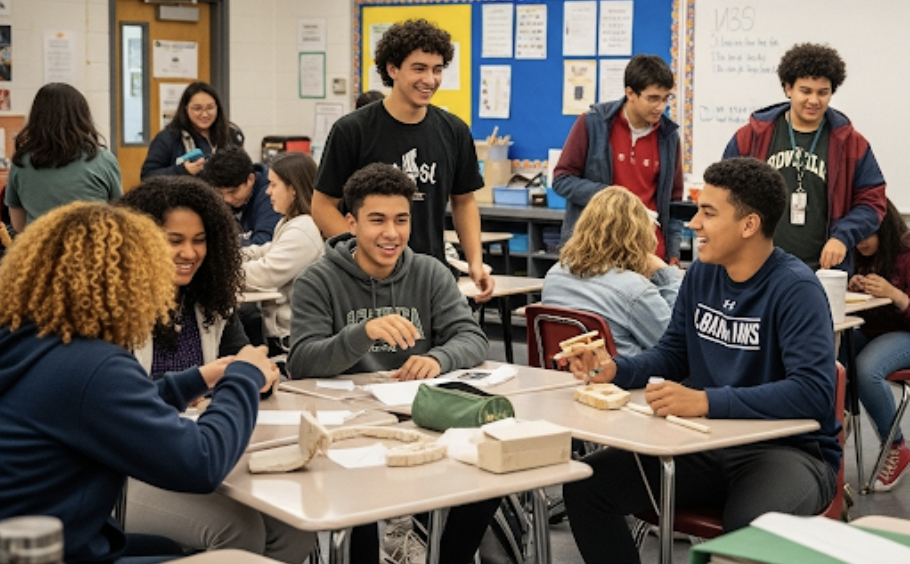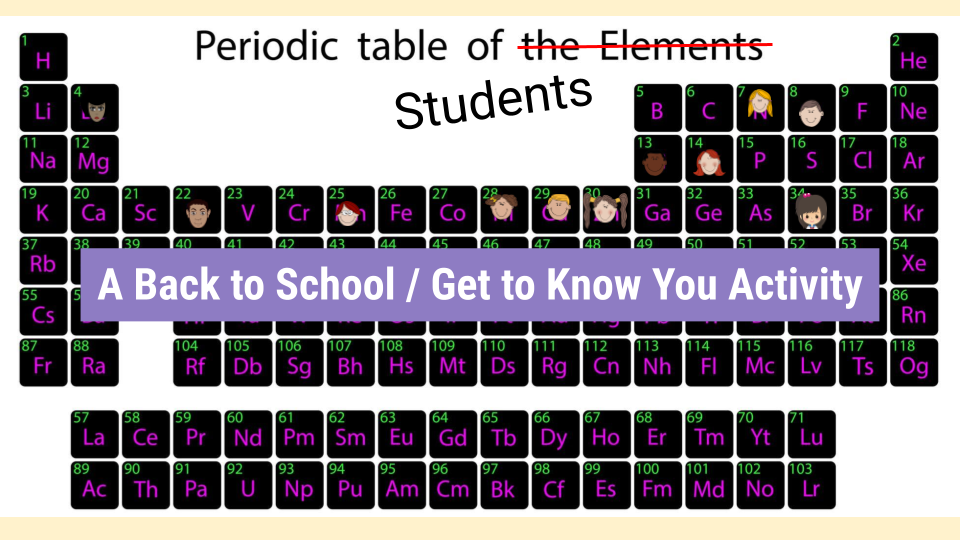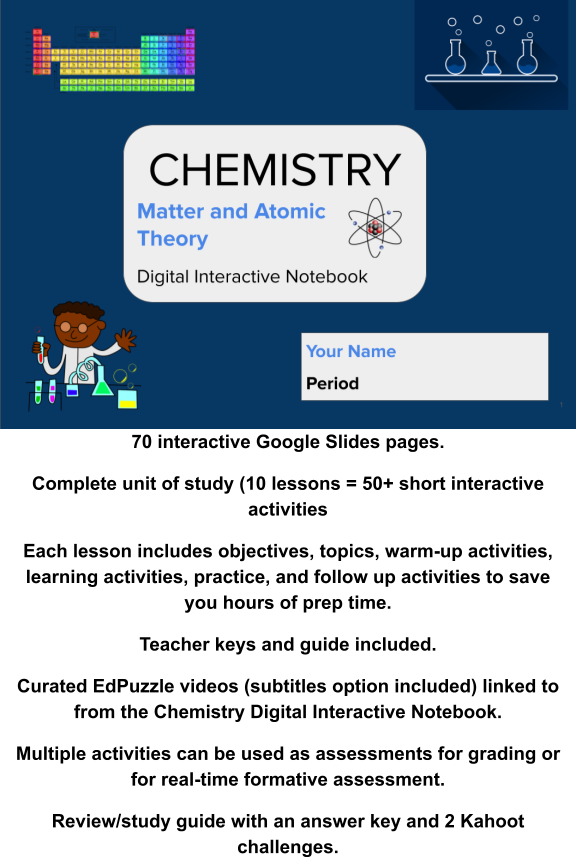Tips, Tricks, and Spells to Remembering Student Names (Hogwarts Style)
I don’t know about you, but for me, that first week of school feels more like a high-stakes memory challenge than teaching. A sea of fresh faces, each belonging to a human with their own hopes, dreams, and a unique name that I just have to know to avoid the anxiety of being seen as just another one of those unapproachable Snape-like, you know the type, teachers.
‘Cause I give a crap. A lot. I’m just an anxious freak. Three months of not doing it fearing I forgot how to do this teaching thing, I’m desperately trying to avoid the "Hey, yous," finger-pointing, and the perception I don’t care.
If that sounds somewhat familiar, fear not, my weary, holy crap it’s the beginning of the school year! educator. Learning your students' names quickly does not require Professor Snape’s Memory Potion but is absolutely magical for building connection, trust, and a classroom where everyone feels seen.
Learning names, like casting spells at Hogwarts, requires practice, purpose, and perhaps a bit of luck. But when you nail a student's name early (day one or two), it's like magic. Their eyes light up! Suddenly, they're not just another body in the room; they're Luna, Harry, Padma. And that, my friends, is the first charm you cast to create a truly welcoming learning environment.
So how about channeling your inner Hermione Granger and learning how to wield this name revealing spell? Because Nomina Revelio doesn’t just sound cool; its mastery turns muggles into wizards.
Seating Chart: Your Marauders Map to Miraculous Memory
Think of your seating chart as your personalized Marauder's Map to a thriving classroom. It’s not just for keeping track of who's kicking whom under the desk; it's your primary training tool for name recall.
Temporary Tent Towns:
On day one, I pretend to have Portkey traveled to the Quidditch World Cup and assign a temporary seating chart. I tell students that I will let them choose their own seats the following week, but in the meantime, I have student groups (my classroom has round tables) whip up a quick name tent – a folded 11x17 piece of paper with their name written large enough to read from across the room.
Next to their name, I ask them to draw their favorite thing in the world (an object, pet, hobby etc.).
On the back, they conjure a spell (phrase) that describes them. I ask them to be creative and use as many words that start with the first letter of their name in their phrase such as “Finn is truly fond of fluffy fantastic beasts.” We later use these for the Name Game Gauntlet.
These are your early warning system against forgetting, like a tiny, legible banner for each aspiring witch or wiz…. I mean student.
Patrol and Practice:
While your students are happily working, put on your stealthy name-memorizing hat. Stroll around the room, glance at your chart, look at the student, and silently (or dramatically but in your head only) repeat their name.
Make an association or create a mental picture that will help you remember each name. "Ah, yes, Ginny, likely a Griffindor, and clearly destined for greatness... or at least remembering to do their homework." The more ridiculous the association, the more memorable it will be. Just don’t suddenly yell Riddikulus!, unless you want them to turn into a black dress-wearing, red purse-wielding Professor Severus Snape.
The Verbal Vortex: Mastering the Pronunciation Charm
Your voice is a powerful tool, not just for explaining concepts, but for etching names into your brain. Think of using it as a tool for perfecting your incantation.
The Door Greeter Guru:
Become the cheerful door greeter. As students shuffle in, greet each one by name. If you draw a blank, don't panic! A polite, "Good morning! What's your name again, my brilliant apprentice?" is infinitely better than a blank stare. Remember to immediately replay the mental picture you made or repeat the phrase they created for themselves.
Instant Name Gratification:
The moment you hear a name, use it. "Thanks, Draco!" or "Could you clarify that for us, Cho?" The more you use it, the faster it sticks, like a well-aimed Accio spell used for summoning their identity instead of your broom.
Pronunciation Perfectionist:
If a name looks tricky, or you butcher it the first time (we've all been there), ask them to correct you politely. "My apologies! Could you say your name for me again so I can get it right, like a true Master of Charms?" They will appreciate the effort, and you'll avoid calling Seamus "See-mas" for the entire semester, a fate worse than facing a bat-wielding cave troll in the girls bathroom.
"Who Are You, Anyway?" Activities & Visual Mnemonics
Combine getting to know them with secret name-learning ops, turning every student into a potential magical creature for your memory.
The Name Game Gauntlet:
On day one, initiate a quick, low-stakes name game. Have students read the phrase they wrote on the back of their tent to their group and then ask each to try to remember and repeat each others phrase. You can walk from table to table and do the same and ask for hints during brain farts.
A simple template for the phrase if students are having a hard time creating their phrase could be "My name is _____ and I like _____” as in My name is Finn and I like fluffy fantastic beasts.
My Life in A Picture:
Also, ask about the favorite thing they drew on their tent next to their name (object, pet, hobby, spirit animal). These little nuggets of information become mnemonic anchors for your students’ names. Example: “Nick, spirit animal Niffler,” and imagine a mole-looking rodent with a shiny gold chain around its neck. Again, the more ridiculous the association, the more memorable it is.
Voldemort (or at Least The Devil) is in the Details:
We often think that the more information we need to remember, the harder it is, and that is mostly true. However, it is actually easier to remember one important fact if we add multiple details to it, because our brains create stronger neural connections responsible for the use and recall of this fact.
Take advantage of this by adding mental detail to each students name. The two activities above are designed exactly for that, but you can add mental details, especially for a student whose name you just can’t remember, such as a famous person or a family member or friend they remind you of.
Strategic Practice: Treat It Like a Pop Quiz (on yourself)
Learning names isn't magic; it's a skill. And like any skill (e.g., brewing a perfect Polyjuice Potion, or surviving Monday mornings), it improves with deliberate practice.
Micro-Mastery Divination Sessions:
Don't aim to learn 150 names in one sitting. Break it down. "Okay, first five students in Row 1. Go!" Or dedicate five minutes before each class to mentally reviewing names. Think of these as your Daily Prophet crosswords, but with faces.
The empty Picture Frame Game:
Grab your class roster. Read a name, then try to picture their face. If you can't, quickly find them on your seating chart. The effort of retrieval is what really locks it into your long-term memory, like an unbreakable vow (but for names, not dark lords).
Self-Correction Incantations:
As you walk around, secretly quiz yourself. "Okay, who's this brilliant young mind, possibly a future Minister for Magic?" If you draw a blank, cheat and peek at your temporary seating chart, I mean Marauder’s Map, and then immediately try to recall it again a few minutes later. No judgment, just pure, unadulterated name-learning dedication worthy of a Hogwarts prefect.
The Paper Handback Spells:
If you still use scrolls and parchment, forget just dropping those student essays on Werewolves on their desks. Personally hand back every single paper. Look at the name, make eye contact, and say the name. "Here you go, Ernie." This simple, repetitive action is pure Expelliarmus for forgetfulness, disarming your brain's tendency to blank out.
Your Personal Rogues' Gallery:
If your school provides student photos, use them! Print them out, arrange them by class, and drill yourself like you're studying for your O.W.L.s. Look at the face, say the name, flip to confirm. Repeat until you can identify them faster than Dumbledore can spot a house elf.
Enlist Your Elves (They're surprisingly helpful, like Dobby!)
Your students are often secretly thrilled that you're even trying to learn their names. Don't be afraid to leverage that!
The "Oops, Remind Me" Clause:
Be real! "Folks, I have a lot of amazing brains to learn this year. If I ever forget your name, please remind me. No offense, just helpful data for this humble Professor!" This makes it okay for them to help you, like a friendly house elf guiding you.
Peer Power:
For group work, have students introduce themselves to their group members. Then, you can float by and say, "Okay, Angelina, can you tell me a few things about Fleur?" It reinforces names for everyone involved, like a communal Pensieve for names.
The "Nailed It!" Moment:
When you successfully use a student's name, especially if you've struggled with it before, they will notice. That little spark in their eyes? That's the power of genuine connection, a bond stronger than the Imperius curse.
By making name learning an intentional (and perhaps slightly obsessive) part of your routine, you'll swiftly transform a room full of strangers into a community of individuals and avoid that dumb Petrificus Totalus look on your face.
So, what's one name-learning "spell" you're excited to use this school year?
Thanks for reading my thoughts! I hope they help you in being more ready for the impending doom of the new school year.
Check out my shop for some fun and engaging science lessons. I try to keep the prices reasonable, but if you cannot spare the fee, please email me, and if it can be emailed, I’ll email it to you for free.
BOOKS & TOOLS
- December 2025 1
- September 2025 2
- August 2025 5
- July 2025 4
- June 2025 2
- August 2024 2
- July 2024 2
- June 2024 1
- October 2023 1
- September 2023 3
- August 2023 6
- July 2023 6
- July 2022 2
- June 2022 1
- November 2020 3
- October 2020 3
- April 2020 1
- March 2020 5
- July 2019 1
- June 2019 1
- April 2019 1
- January 2019 1
- November 2018 3
- October 2018 2
- September 2018 1
- August 2018 8
- July 2018 11
- June 2018 4
- May 2018 5
- April 2018 2
- March 2018 4
- February 2018 5
- January 2018 3
- December 2017 1
- November 2017 5
- October 2017 7
- September 2017 6
- August 2017 5
- July 2017 3
- June 2017 10
- May 2017 7
- April 2017 7
- March 2017 15
- February 2017 12
- January 2017 13
- December 2016 15
- November 2016 8
- October 2016 7
- September 2016 12
- August 2016 14
- July 2016 10
- June 2016 13
- May 2016 10
- April 2016 8
- March 2016 5
- February 2016 7
- January 2016 6
- December 2015 5
- November 2015 8
- October 2015 2







![[Earth & Space Science] Cosmic Scene Investigation: A Case of the Kilonova](https://images.squarespace-cdn.com/content/v1/5611dbcce4b0b27692201460/af009c00-4e48-4f80-a91c-3a7899d66828/Cosmic+Scene+Investigation_+A+Case+of+the+Kilonova.png)

![[Earth Science] Terraforming Mars: The Red Planet](https://images.squarespace-cdn.com/content/v1/5611dbcce4b0b27692201460/cf20dede-a655-4803-9af0-1ef1b49c8747/Terraforming+Mars_+The+Red+Planet+_Shark+Tank_+Innovation+Challenge.png)



